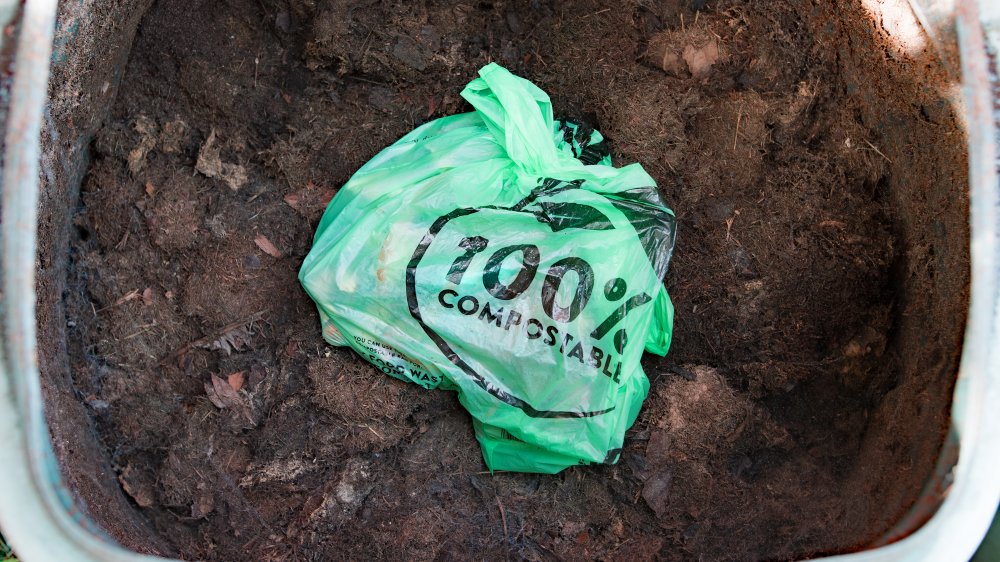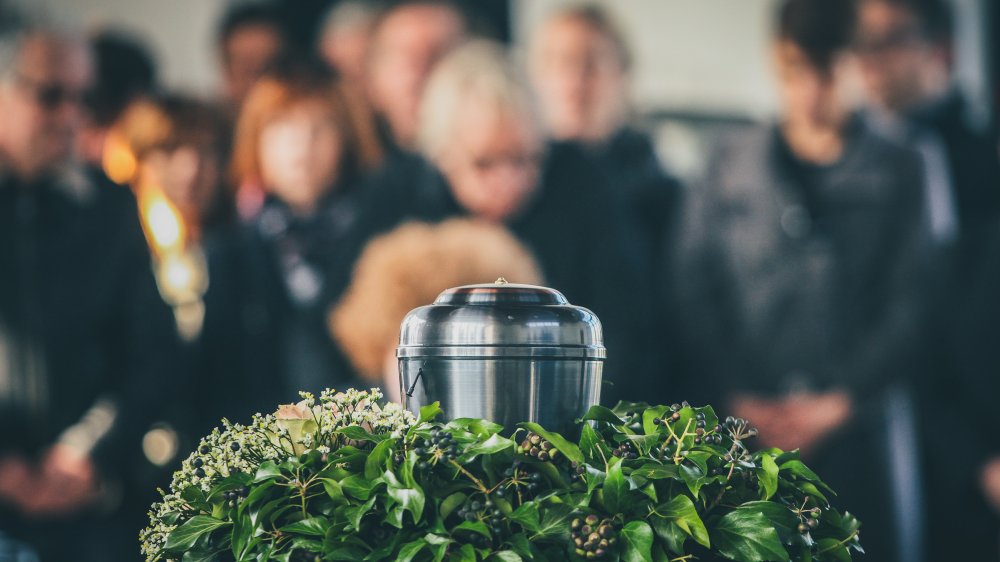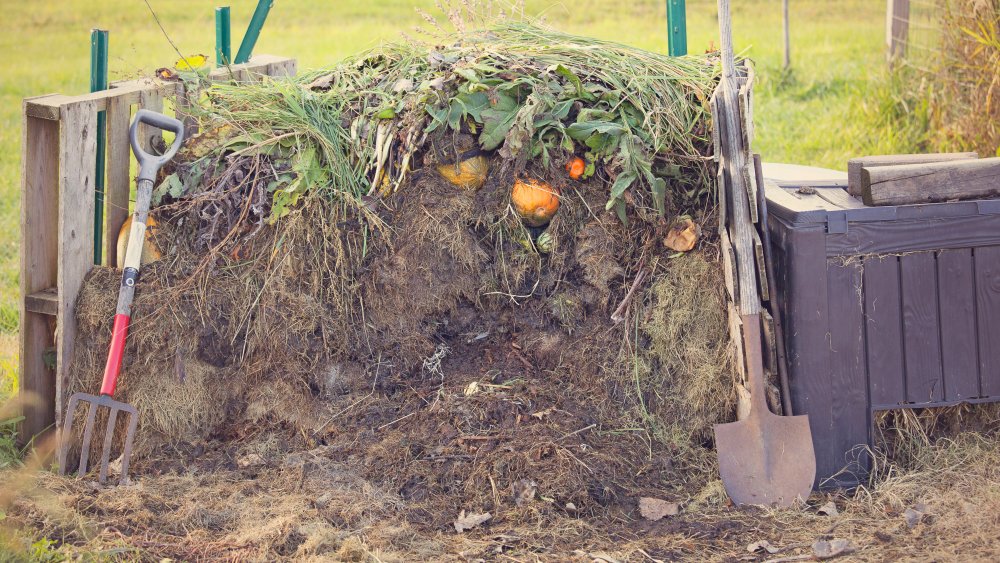Turning Humans To Compost Could Be The Future Of Body Disposal
When you die, what happens to your body? It's not something most people like thinking about. After all, death is the end of earthly existence, and while some might have a "who cares?" attitude about their remains and/or their funerals, it probably matters far more to your loved ones, who are going to have to deal with your corpse in some costly fashion. That said, the common options carry steep environmental burdens, which is why some scientists are now recommending the new and exciting method of giving your body up for compost. Consider it a final gift to the world which created you.
The surprising environmental problems of corpse disposal
Here's the thing funeral directors don't tell you, in regard to the embalming of dead people: it's bad for the environment. As explained by Business Insider, embalming a corpse basically just means pumping it full of potentially carcinogenic chemicals like formaldehyde. When the body goes underground, all this toxic stuff goes with it, pumping gallons of said formaldehyde into the earth. Yuck. Caskets, then, use up the wood that could otherwise build 4.5 million homes. Think cremation is much better? Think again. While not quite as toxic as embalming, cremation still releases heavy metals, soot, sulfur dioxide, and carbon monoxide into the atmosphere, while the ashes themselves give nothing back to the Earth.
There has be a better, more eco-friendly, way, right? Yes, and it's called natural organic reduction, the future of human death.
The benefits of composting the dead
Corpse composting is simple enough to understand, particularly if you already do it with your plant waste, like potato skins and apple cores. In 2020, Science News reported positive results for a Seattle trial of six dead bodies, which were allowed to naturally decompose in a natural plant-made vessel while being rotated at routine intervals, to promote maximum decomposition. Just four to seven weeks later, the only things left were skeletons — and if this process were adopted on a wider scale, the bones would be processed thoroughly as well. Afterward, the soil was tested, to make sure that the bodies hadn't released any dangerous toxins, and sure enough, the earth met all safety standards set by the U.S. Environmental Protection Agency.
As of 2019, Washington became the first state to give the go-ahead to natural organic reduction as a legal way to deal with dead bodies. Other states are currently considering following Washington's lead. Meanwhile, The Guardian writes, that over in the U.K., interest in the process is also ticking upward.
So hey, here's to a greener future for all dead people, everywhere.


